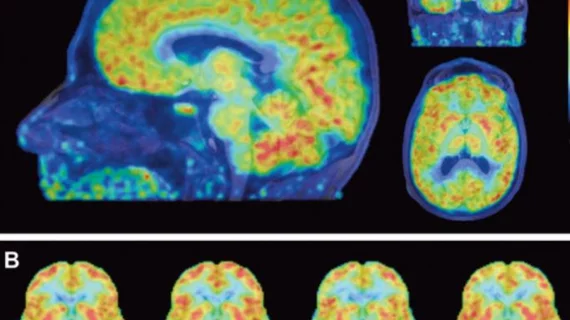NIH hands out $3.5M grant for PET-based research into depression
Stony Brook University researchers have received a five-year, $3.5 million grant to use positron emission tomography imaging to better understand which brain abnormalities cause depression.
Ramin Parsey, MD, PhD, co-principal investigator of the study, said the funds provided by the National Institutes of Mental Health will allow his team to use a special imaging probe capable of quantifying the precise degree of brain inflammation in these patients.
“We believe that depression isn’t a unitary disorder but rather a series of different brain abnormalities that lead to what looks like depression,” Parsey, who is also the chair of biomedical imaging at the New York-based institution, said in a statement. “Further we believe one of these brain abnormalities is tied to inflammation.”
Prior work undertaken by Parsey and others has pinpointed the translocator protein (TSPO) as a marker of "neuroinflammation." On average, TSPO is elevated by nearly 30% in the prefrontal cortex of individuals with depression compared to healthy patients.
In these patients with the highest amounts neuroinflammation, the team will test the effectiveness of a drug—celecoxib—that’s commonly used to reduce inflammation.
After their research is over, Parsey and colleagues hope to be able to define the brain abnormalities underlying depression and suggest novel treatments. He also mentioned the team will seek approval to enroll individuals with depression who were also diagnosed with COVID-19 in their study, noting that some may have additional brain inflammation.

